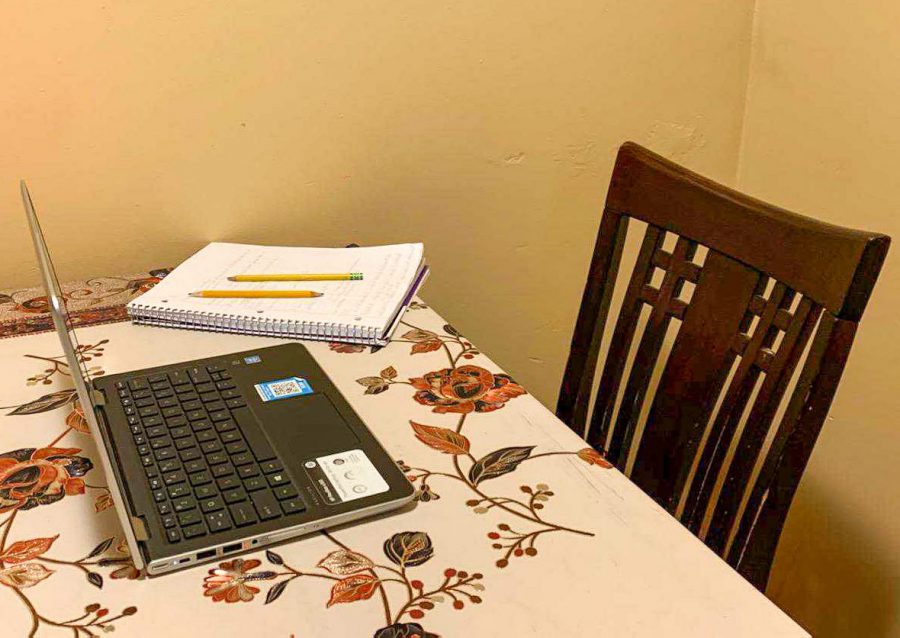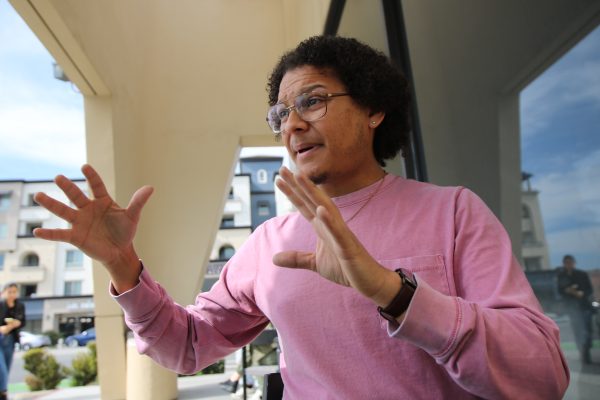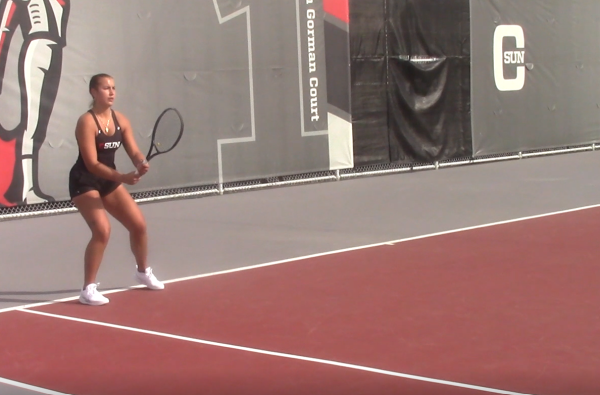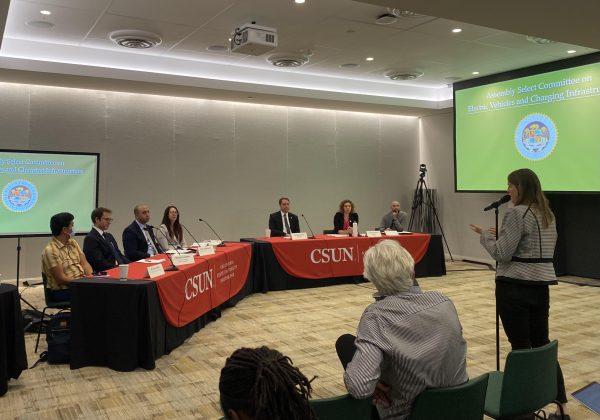‘Zoom University’ is taking a toll on students as they try to finish their education
October 16, 2020
Lively classroom discussions turned into muted Zoom meetings. Quiet libraries turned into distracting family kitchens.
The CSU system determined that online instruction is the safest way for students to continue their higher education during COVID-19, but some students face challenges to complete their degree as they try to adapt to a new learning environment.
As soon as CSUN transitioned to virtual instruction, Ruslan Zak, a senior majoring in recreation and tourism management, noticed his laptop started to take a toll from the use, taking longer to open applications. His old and slow laptop made Zoom meetings unbearable.
Pulling all-nighters, he has struggled with procrastination and often completes his assignments at the last minute after hours of being distracted by movies or YouTube videos.
“I don’t like this new learning environment because I don’t learn anything as much as it was in person, and that worries me because this is my last year taking my last major courses,” Zak said.
Before the pandemic, Zak regularly went to the Oviatt Library to do his homework. Zak explained that seeing other students work around him motivated him to study without distractions.
According to a recent study by College Pulse and the Charles Koch Foundation, a sample size of 5,000 undergraduates, 78% of students — who have never taken an online class — said that online school is the least effective way to learn. In the same study, 59% of respondents said that virtual learning is a less effective way to acquire knowledge of a particular subject.
CSUN, along with other Cal State campuses, announced that the spring semester will also be virtual. This means that students who are currently struggling with virtual instruction would have to find new ways to accommodate their learning needs even if it’s hard to comprehend the material.
In order to help himself avoid procrastination, Zak said he works on homework with a friend via Zoom. This accountability has allowed him to stay focused at home.
“We don’t talk or distract each other. All we do is log in, minimize the screen and start doing our assignments and I think this is better than nothing,” he said.
While clearing his email inbox during finals week in the spring semester, Zak missed an email from CSUN announcing that students can loan free laptops from the bookstore.
Little did he know reading the email could have helped his online learning experience. Zak eventually borrowed a laptop for the rest of the semester.
“Even though I am struggling right now and most likely I won’t graduate on stage next semester, I still value my education and I remind myself that the reason I’m here is to achieve my goal and make my mother proud,” Zak said.
Unlike Zak, who has his own room, learning from home can be difficult if students don’t have a quiet place to study or hear their professors’ lectures in peace.
Arleen Cruz, a senior majoring in child and adolescent development at CSUN, currently struggles to find a quiet place in her home. Cruz lives with seven relatives in a small apartment. She often has to make a classroom out of a shared room for herself and her two young siblings.
Cruz says she can’t concentrate on her homework with so much noise and often can’t hear her own lectures while her sister is on a Zoom call at the same time.
According to the California Student Aid Commission’s statewide survey which was emailed to 76,000 college and high school seniors, 46% of them experienced a change in their living situation.
Like many other students, Cruz used to live in the CSUN dorms, where it was easier for her to focus.
Now, she feels unmotivated to attend online classes as she tries to adjust to her new learning environment. The only way Cruz can complete her homework with less distractions is to sit at the kitchen table at night when her relatives are asleep.
“After I help my little siblings with their homework, I start doing my own work in the kitchen, but I would struggle to stay for long periods of time on the computer because lately, my eyes have been very irritated. So I had to order glasses to protect my eyes from being on the screen too much,” she said.
While Cruz takes care of her siblings and attends school, she has little time to contact friends. Many students look forward to college for the social life, but when classes are held virtually and people need to maintain distance, creating new relationships and memories is difficult.
Mauricio Longines, who is majoring in biology, will graduate in the fall. Without being able to meet new people on campus he is also struggling socially.
“I miss the social interactions at CSUN, in terms of meeting and talking to people,” he said. “It’s hard to do it over Zoom because I just log in, listen to the professor and log out.”
Longines is not alone. More than 62% of the students said schools adopting distance learning would make it difficult to develop close friendships with other students, according to the College Pulse and Charles Koch Foundation study. 55% of students from the same study said that a shift to online instruction would make it harder to feel like they were part of a campus community.
Longines said that he doesn’t like when his professor assigns breakout rooms on Zoom because if nobody starts the conversation, it just leads to an awkward silence.
“It’s not the same as it was in person because in class, we work together on an exercise and I start learning more about the topic the more I discuss it with my group,” he said. “In Zoom, I don’t really learn as much and I just let it be.”










